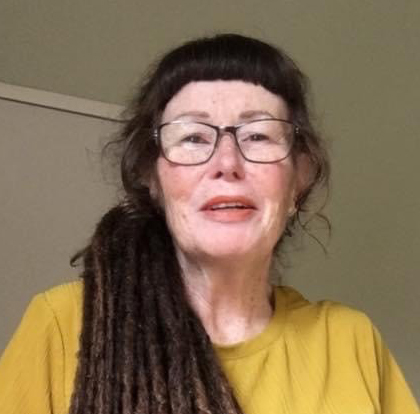This is What Arthritis Looks Like
“Arthritis is a debilitating yet mainly invisible disease that robs you of so much in life. It is so hard to explain to people that you feel like shit yet look normal.”
You say ‘I am fine’ all the time when really you are anything but fine.
Karen from Whanganui has Rheumatoid Arthritis. After more than a decade of symptoms, she was diagnosed at the age of 50, more than 10 years ago.
The hardest part of having Arthritis is the frustration of not being able to do simple tasks like open a jar, do up your bra, or put shoes on. Having to struggle or ask for help all the time. Having to pace yourself and only do on a good day what you can do on a bad day. The frustration you feel, feeling useless, feeling afraid of the future.

Karen
Rheumatoid Arthritis
“The anti-inflammatories I have had through the years have caused Gastro-Oesophageal Reflux Disease, and last year I had three stents put in my heart from heart disease, which the doctors attribute to Rheumatoid Arthritis and the medication.”
“When I have a flare-up, my whole body feels like it is protesting everything I do. I ache everywhere, my joints feel on fire, everything hurts, and emotions go into overdrive. I just want to curl up in a ball and cry. All of this makes me a not-so-nice person.”
Karen starts her day slowly. Her hands take an hour or two in the morning to unclench and work fully. Doing things with her arms raised is a struggle. Buttons are a curse, and trying to pull on shoes can be a problem. She struggles to open some things, has less strength in her hands which sometimes results in dropping things, particularly in the kitchen. Karen can not walk far, and she tires easier nowadays.
“I never wake up feeling like I have had a good sleep as fatigue is always with me. The fatigue is the hardest battle, it is not like being tired, it is wary body fatigue that can really grind you down if you let it.
Arthritis impacts your whole life
Karen never realised what a constant battle it is having a health issue. “It takes over your life sometimes, but I am so fortunate that my husband and adult boys are so supportive, loving and caring. I can’t imagine doing this alone or without support. I have to plan more to make sure I am physically able to do things when I need to. I am not letting it stop me or limit me. I have had to learn to be open with those who care and ask for help when I need it.”
Arthritis has changed what Karen can do. She had to give up her career and reduce to part-time work.
The medication regimes are complex and don’t always work, so people with Arthritis are continually having to change and try new drugs. Finding the right medication is a journey that each person with autoinflammatory Arthritis has to travel. Karen is on Methotrexate, Humira, folic acid, Celecoxib, Colecalciferol, Panadol, Codalgin and Prednisone.
“The anti-inflammatories I have had through the years have caused Gastro-Oesophageal Reflux Disease, and last year I had three stents put in my heart from heart disease, which the doctors attribute to Rheumatoid Arthritis and the medication.”
Self-management
“I still cycle and stay fit as this is what keeps me sane, and it’s the only exercise that doesn’t hurt my joints. I can’t do as much as I would like otherwise the price I pay is too high. Keeping my leg muscles strong reduces the pain in my knees. I stay fit and healthy to keep my weight under control to lessen the impact on my body, and I take hemp oil to help with sleep.”
Karen works hard on her mental wellbeing as it is easy to get down and frustrated at what she can’t do. She finds mindfulness practice and yoga helps her focus on what she can do and stay positive and grounded to deal with pain.
“With the right combination of specialists, medication, support and attitude, we can live a full life. People need to learn more about Arthritis so they can positively support family and friends. Arthritis New Zealand’s support is excellent. They have good webinars, and their social media support groups are great. The groups have a lot of great information shared, awareness raised, and you can chat with people who understand what you’re living with. Just being able to talk openly with someone who knows what you are going through is great.”
